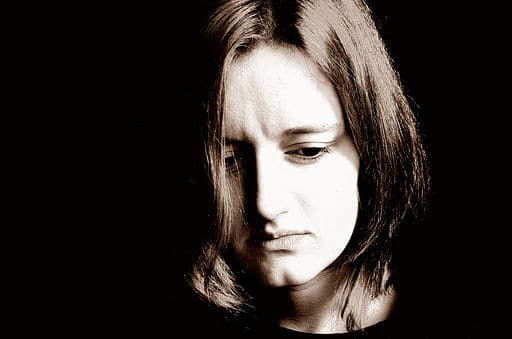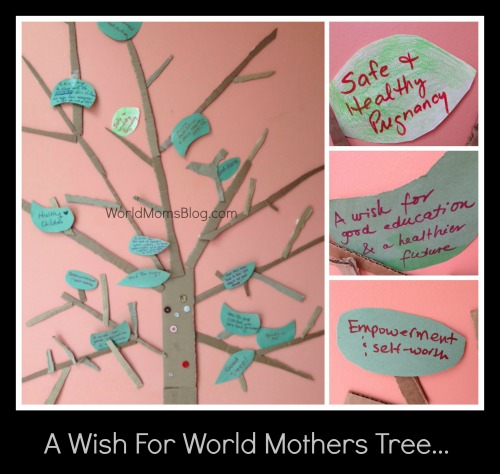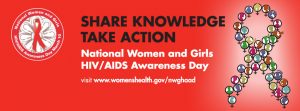
by Carol (Canada) | Jun 7, 2013 | Babies, Canada, Communication, Culture, Family, Health, Infertility, Kids, Loss of Child, Maternal Health, Miscarriage, Motherhood, Pregnancy, Relationships, Womanhood, Working Mother, World Motherhood, Younger Children

Recently, when I was around 10 weeks pregnant, I went in for a dating ultrasound.
My midwife wanted to confirm my baby’s due date, because we suspected that I was actually 9 weeks along, or maybe 11 weeks.
The radiologist discovered that my baby was dead – had died at 8 weeks and 4 days… whenever that had been.
We all know that miscarriage is always a risk, but it’s still a shock to go in for a routine ultrasound with a seemingly healthy pregnancy… and then leave in tears talking about getting a D&C.
A week later I was sedated and the remains of my baby were scooped out of me.
I was heartbroken. I was grieving.
But I was also very lucky: I had immense amounts of support.
I had friends texting me constantly asking what they could do to help. My house smelled like roses, because the girls at work sent me a big bouquet of flowers. My neighbours invited our son over for dinner so we wouldn’t have to fake cheerfulness with him, and left cookies in our mailbox.
The love and support I received contrasted violently with the experience of a friend, who was fired from work after her miscarriage, who got no flowers, no cookies, and whose grandmother and mother-in-law both hurt her frequently by nagging her to produce a baby.
But it’s not a fair comparison – you see, I told people about my miscarriage.
My friend did not.
The conventional wisdom – in our part of the world at least – says that you shouldn’t even tell people that you are pregnant, lest you miscarry. Better to wait until the second trimester, when your risk of miscarriage drops dramatically.
The implied assumption is that you don’t want to tell people about your miscarriage, so it’s better keep your pregnancy a secret until that danger has passed.
I want to know: Why don’t we want to talk about miscarriage?
For many women, miscarriage isn’t just a matter of, “Oops, never mind, no baby after all!” While some may feel that way, and that’s fine, others can be devastated.
I wasn’t just mourning the 8 week jellybean inside me. I was weeping for the baby I had been expecting, my Christmas baby, and as I wept, I clutched the little newborn sized Christmas pajamas that I had already bought.
And sometimes these women suffer side by side.
I had two friends who miscarried close to each other. Both told me, neither told the other. They each thought they were alone. Neither knew what the other was going through. Neither knew that they had something in common.
When I announced my loss at work, every woman over 35 had a miscarriage story to share.
Just think – of the ten women at my work, four have had miscarriages. And none of them talked about it… until I announced mine.
They shared their grief with me, and we hugged each other, and listened to each other’s stories.
And I wondered… why aren’t we supposed to do this?
Why do so many women keep miscarriage a secret, often not even telling friends or family members? Why do some women keep their pregnancies a dark secret, just out of fear that the pregnancy might end?
There’s an element of shame that hovers around miscarriage.
People think that talking about their miscarriage somehow addresses a failure, as if they had made a mistake.
It’s natural to blame yourself for your miscarriage. My first thought was, “What did I do wrong?”
The first thing my midwife said to me was, “You did nothing wrong.”
When I spoke to the nurse at the Early Pregnancy Assessment Centre, she told me that 97% of the time, miscarriages are caused by chromosomal abnormalities and have nothing to do with the mother’s actions.
When I went on to worry that something I was exposed to at work might have killed my baby – x-rays, or pesticides – she told me, “We see a LOT of women in here who are pregnant, but don’t want to be. You wouldn’t believe the crazy stuff they have tried to end the pregnancy at home. It never works. Trust me – there is nothing you could have done to bring this on yourself.”
My miscarriage was not my fault.
I didn’t fail, and the women who have told me about their miscarriages didn’t fail either. So why do we treat it like a failure?
But even the term “miscarriage” implies some fault on the woman, as if I had dropped the baby in a moment of thoughtlessness. In fact, some women have even been prosecuted for their miscarriages.
So we don’t tell people about it.
In a culture where you aren’t supposed to talk about your miscarriage – or even your first trimester pregnancy lest it end in miscarriage – families grieve for their lost babies in a vacuum of shame and secrecy.
There is no funeral. No compassionate leave. No Hallmark cards. But that doesn’t make it less real of a loss.
Even women who aren’t grieving their miscarriage – perhaps they didn’t even want the baby – feel the need to hide it due to the stigma around it.
And that’s never going to change unless people start talking.
Until we bring miscarriage into the light, it will remain a dark, hidden secret.
Until people start talking about it, people won’t know how to respond to it appropriately. Until we remove the stigma, the shame will continue.
Until we talk about it, people will continue to suffer in silence.
Because if you don’t tell anyone unless they have had a miscarriage too, how does anyone who has miscarried find each other?
It just takes one person to speak out, to announce their loss like it is any other loss, and the stories and support come pouring in.
So we need to speak up.
We need to tell people when we suffer a loss. We owe them that, and we owe ourselves that, because for all we know, they need someone to talk to, too. Don’t assume that they don’t know what you’re going through, because chances are, they do.
I’m asking all of you to be brave.
Talk about it on Facebook.
Tweet it, #talkaboutmiscarriage.
Tell people you don’t know very well.
Tell them if you’re grieving. Tell them if you aren’t.
There’s no reason to hide what has happened, or how you feel about it. Chances are neither the experience, nor your emotions, are unique to you.
Only by opening those doors can we find the support we need, and join together the women who have been suffering in silence for all this time.
Have you or has someone close to you had a miscarriage? How did cultural attitudes toward it affect the grieving process?
This is an original post for World Moms Blog by Carol. She can be found blogging at If By Yes and on Twitter @IfByYesTweets.
Photo credit to Jiri Hordan. This photo has been released into the public domain by its author, Jiri Hordan.
Carol from If By Yes has lived in four different Canadian provinces as well as the Caribbean. Now she lives in Vancouver, working a full time job at a vet clinic, training dogs on the side, and raising her son and daughter to be good citizens of the world.
Carol is known for wearing inside-out underwear, microwaving yoghurt, killing house plants, over-thinking the mundane, and pointing out grammatical errors in "Twilight". When not trying to wrestle her son down for a nap, Carol loves to read and write.
Carol can also be found on her blog, If By Yes, and on Twitter @IfByYesTweets
More Posts - Website
Follow Me:


by Mannahattamamma (UAE) | May 22, 2013 | Body Image, Cultural Differences, Feminism, Human Rights, Religion, SAHM, Sex, Tunisia, UAE, Womanhood, Women's Rights, World Events, World Voice
 I used to have a college professor—of women’s studies, of course—who would occasionally start class when we were particularly chatty and inattentive by saying, loudly, “SEX!” Our heads would whip around to stare at her and the room would be silent.
I used to have a college professor—of women’s studies, of course—who would occasionally start class when we were particularly chatty and inattentive by saying, loudly, “SEX!” Our heads would whip around to stare at her and the room would be silent.
The professor would chuckle and then start the lesson, which almost never had anything to do with sex—or at least not sex in an interesting way. Her way of talking about sex was dry and academic, having to do with words like “hegemony” or “heteronormative.”
I thought about that professor a few weeks ago when I read about “International Topless Jihad Day,” sponsored by FEMEN in support of Amina Tyler, who had sparked a global controversy by posting a topless pictures of herself on Facebook with “my body belongs to me and is not the source of anyone’s honor,” scrawled on her naked chest in Arabic. Tyler’s life—and the lives of her family—were threatened after the pictures were posted; she has since left Tunisia, where she lived.
The topless jihadists claimed that their actions showed solidarity with Amina and sent a message to the world that women’s bodies belong to no one but themselves. And yet it seems a bit like my professor yelling SEX! FEMEN is yelling BOOBS–and the topless jihad did, it’s true, get a lot of press coverage. The coverage drew attention to Amina’s plight but also gave respected media outlets a chance to run pictures of boobs and more boobs: Huffington Post ran a whole slideshow of revolutionary boobs. (more…)
After twenty-plus years in Manhattan, Deborah Quinn and her family moved to Abu Dhabi (in the United Arab Emirates), where she spends a great deal of time driving her sons back and forth to soccer practice. She writes about travel, politics, feminism, education, and the absurdities of living in a place where temperatures regularly go above 110F.
Deborah can also be found on her blog, Mannahattamamma.
More Posts
Follow Me:


by World Moms Blog | Apr 19, 2013 | Africa, Clean Birth Kits, Economy, Education, Family, Health, Human Rights, International, Motherhood, Multicultural, Older Children, ONE, Parenting, Poverty, Pregnancy, Shot@Life, Sleep, Sleep and Children, Social Good, Travel, Uganda, United Nations, Vaccines, Womanhood, World Moms Blog, World Motherhood, World Voice, Younger Children
 The World Moms are making a difference in the world, and we get excited to see our friends and readers run with something we’ve advocated for. Today we are featuring a guest post from a friend of the blog, Shilpa, owner of the online global home and fashion retailer, Harabu House.
The World Moms are making a difference in the world, and we get excited to see our friends and readers run with something we’ve advocated for. Today we are featuring a guest post from a friend of the blog, Shilpa, owner of the online global home and fashion retailer, Harabu House.
“Equal pay for women”, “Healthy Children”, “A Good Sleep”, “A Good Education”, “Safe and Healthy Pregnancies” are just some of the wishes expressed for world moms at a casual event hosted by Jennifer Burden, founder of World Moms Blog. Jennifer had organized this event to highlight her trip to Uganda with the UN Foundation’s Shot@Life program, while telling a group of about 30 women about the women behind World Moms Blog and their social good initiatives.
A mutual friend of ours had suggested that Jen and I would hit it off with our interest in all things global, and we sure did! I was thrilled when I received an invitation to her event as I wanted to know more about her trip to Uganda.
We enjoyed wine, cheese and chocolate at Jen’s house and shared our own wishes for world mothers on a tree created from cardboard on her wall. Then, she called us into her family room in the middle of the party for a presentation. With her laptop connected to her T.V., she took us on a journey to Uganda through pictures. (more…)
World Moms Blog is an award winning website which writes from over 30 countries on the topics of motherhood, culture, human rights and social good. Over 70 international contributors share their stories from around the globe, bonded by the common thread of motherhood and wanting a better world for their children.
World Moms Blog was listed by Forbes Woman as one of the "Best 100 Websites for Women 2012 & 2013" and also called a "must read" by the NY Times Motherlode in 2013. Our Senior Editor in India, Purnima Ramakrishnan, was awarded the BlogHer International Activist Award in 2013.
More Posts

by World Moms Blog | Mar 10, 2013 | Girls, Health, Kids, Older Children, Sex, Social Good, Womanhood, Women's Rights, World Voice, Younger Children
 HIV/AIDS affects millions of women and girls in the United States, and many more across the world. According to the Centers for Disease Control and Prevention, almost one-quarter of the teens and adults diagnosed with HIV in the United States each year are women — yet many women and girls may not be aware of their risk of getting HIV.
HIV/AIDS affects millions of women and girls in the United States, and many more across the world. According to the Centers for Disease Control and Prevention, almost one-quarter of the teens and adults diagnosed with HIV in the United States each year are women — yet many women and girls may not be aware of their risk of getting HIV.
That’s why the U.S. Department of Health and Human Services’ Office on Women’s Health will sponsor the eighth annual National Women and Girls HIV/AIDS Awareness Day on March 10, 2013. This year, participants are invited to “Share Knowledge. Take Action.”
National Women and Girls HIV/AIDS Awareness Day seeks to galvanize the women, public health advocates, and communities fighting this disease. By hosting the observance with partners across the country, the Office on Women’s Health aims to offer support and hope, reduce the stigma of HIV, and empower women and girls to take positive actions like getting tested, seeking treatment, educating their peers, and preventing new infections.
Below are a few ways that you can participate and make your voice heard. (more…)
World Moms Blog is an award winning website which writes from over 30 countries on the topics of motherhood, culture, human rights and social good. Over 70 international contributors share their stories from around the globe, bonded by the common thread of motherhood and wanting a better world for their children.
World Moms Blog was listed by Forbes Woman as one of the "Best 100 Websites for Women 2012 & 2013" and also called a "must read" by the NY Times Motherlode in 2013. Our Senior Editor in India, Purnima Ramakrishnan, was awarded the BlogHer International Activist Award in 2013.
More Posts

by Nicole Melancon (USA) | Mar 8, 2013 | Communication, Family, Grandparent, Life Lesson, Motherhood, Parenting, Post Partum Depression, Third Eye Mom, Womanhood, World Motherhood
 I grew up in a close-knit family of five in the seventies and eighties to such popular shows that reflected our lives like The Brady Bunch, Who’s the Boss and Different Strokes. Long gone were the days of Leave it to Beaver and mothers wearing aprons around the house all day greeting their working husband each evening with a freshly cooked meal and a smile. The seventies and eighties meant more liberation for women and the family structure changed right along with it.
I grew up in a close-knit family of five in the seventies and eighties to such popular shows that reflected our lives like The Brady Bunch, Who’s the Boss and Different Strokes. Long gone were the days of Leave it to Beaver and mothers wearing aprons around the house all day greeting their working husband each evening with a freshly cooked meal and a smile. The seventies and eighties meant more liberation for women and the family structure changed right along with it.
My mother was always my biggest advocate picking me up off the ground when I fell, wiping the tears off my checks when I’d been dumped by a boy and loving and supporting me to follow my dreams. She also taught me to stand up for what was right and wrong and to always be humble, not proud. I followed her teachings and once I left for college our friendship and love grew into maturity.
Everything was wonderful for the next 12 years until the moment when everything changed. I became a mother.
At the time, I had no idea that anything would ever change between us. I thought our bond would grow stronger once I was a mother too. But I was wrong. Instead, our relationship has become filled with tension, confusion and stress. It took me a long time to realize and understand that our relationship had permanently changed and even longer to understand the reason why. (more…)

Third Eye Mom is a stay-at-home mom living in Minneapolis, Minnesota with her two children Max (6) and Sophia (4). Her children keep her continually busy and she is constantly amazed by the imagination, energy and joy of life that they possess! A world wanderer at heart, she has also been fortunate to have visited over 30 countries by either traveling, working, studying or volunteering and she continues to keep on the traveling path.
A graduate of French and International Relations from the University of Wisconsin Madison, where she met her husband Paul, she has always been a Midwest gal living in Minnesota, Wisconsin and Chicago. This adventurous mom loves to be outside doing anything athletic (hiking, running, biking, skiing, snowshoeing or simply enjoying nature), to travel and volunteer abroad, to write, and to spend time with her beloved family and friends.
Her latest venture involves her dream to raise enough money on her own to build and open a brand-new school in rural Nepal, and to teach her children to live compassionately, open-minded lives that understand different cultures and the importance of giving back to those in need. Third Eye Mom believes strongly in the value of making a difference in the world, no matter how small it may be. If there is a will, there is a way, and that anything is possible (as long as you set your heart and mind to it!).
Visit her on her blog, Thirdeyemom, where she writes about her travels and experiences in other lands!
More Posts
by Melanie Oda (Japan) | Mar 4, 2013 | Japan, Uncategorized, Womanhood, World Moms Blog
 It’s hard being female.
It’s hard being female.
I think that’s holds true wherever you might find yourself in the world, but perhaps it is especially true here in Japan, where women have to deal with a well-established patriarchy as well as facing pressure from the older women in their lives to stay home, stay quiet, stay under control.
Perhaps it is ironic and surprising to some, to find that in this corner of East Asia, where women are still not allowed into Sumo rings for fear of “contaminating” sacred ground, there is a day set aside to celebrate the girls.
On March 3rd, families rich and poor, pause to pray for the health and happiness of their female children. In Japanese, this day is called Hina Matsuri, which literally translates as “Princess Festival.” Most English sources refer to it as “Girls Day” or “Doll Festival.”
When a female child is born, during her first year the family will purchase an elaborate set of dolls representing the traditional imperial court. No expense is spared, as it is believed the dolls will take her place in the event of natural disaster and will help protect her from sickness. Many families take pride in procuring a seven-level set, complete with the Empress and Emperor in many-layered kimono, the Empress’s attendants, musicians, and various objects found in the royal court. For others, space is a factor, but not to worry! Three tier sets and one tier sets are also popular. (more…)
If you ask Melanie Oda where she is from, she will answer "Georgia." (Unless you ask her in Japanese. Then she will say "America.") It sounds nice, and it's a one-word answer, which is what most people expect. The truth is more complex. She moved around several small towns in the south growing up. Such is life when your father is a Southern Baptist preacher of the hellfire and brimstone variety.
She came to Japan in 2000 as an assistant language teacher, and has never managed to leave. She currently resides in Yokohama, on the outskirts of Tokyo (but please don't tell anyone she described it that way! Citizens of Yokohama have a lot of pride). No one is more surprised to find her here, married to a Japanese man and with two bilingual children (aged four and seven), than herself. And possibly her mother.
You can read more about her misadventures in Asia on her blog, HamakkoMommy.
More Posts







 The World Moms are making a difference in the world, and we get excited to see our friends and readers run with something we’ve advocated for. Today we are featuring a guest post from a friend of the blog, Shilpa, owner of the online global home and fashion retailer,
The World Moms are making a difference in the world, and we get excited to see our friends and readers run with something we’ve advocated for. Today we are featuring a guest post from a friend of the blog, Shilpa, owner of the online global home and fashion retailer, 
 HIV/AIDS affects millions of women and girls in the United States, and many more across the world. According to the Centers for Disease Control and Prevention, almost one-quarter of the teens and adults diagnosed with HIV in the United States each year are women — yet many women and girls may not be aware of their risk of getting HIV.
HIV/AIDS affects millions of women and girls in the United States, and many more across the world. According to the Centers for Disease Control and Prevention, almost one-quarter of the teens and adults diagnosed with HIV in the United States each year are women — yet many women and girls may not be aware of their risk of getting HIV.
 I grew up in a close-knit family of five in the seventies and eighties to such popular shows that reflected our lives like The Brady Bunch, Who’s the Boss and Different Strokes. Long gone were the days of Leave it to Beaver and mothers wearing aprons around the house all day greeting their working husband each evening with a freshly cooked meal and a smile. The seventies and eighties meant more liberation for women and the family structure changed right along with it.
I grew up in a close-knit family of five in the seventies and eighties to such popular shows that reflected our lives like The Brady Bunch, Who’s the Boss and Different Strokes. Long gone were the days of Leave it to Beaver and mothers wearing aprons around the house all day greeting their working husband each evening with a freshly cooked meal and a smile. The seventies and eighties meant more liberation for women and the family structure changed right along with it.



